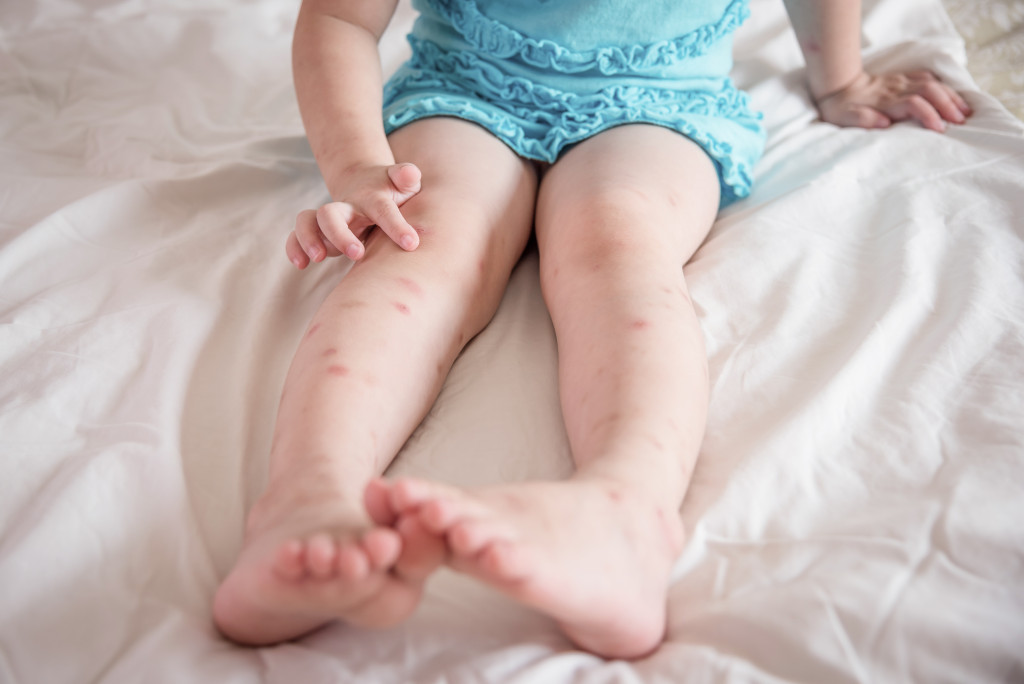The number of American children with allergies has increased by 50% in the last decade. According to a new study by the Asthma and Allergy Foundation of America, more than 17 million children in the United States have been diagnosed with allergies. What’s worse is that the number of children with allergies has increased by 1-2% each year for at least a decade.
Even more alarming is the increase in children with life-threatening allergies. The study found that about 1.8 million kids have food allergies, another 1.4 million have asthma, and 2.1 million suffer from seasonal allergies.
Here are the best ways to manage allergies at home and in school:
Manage Your Child’s Allergies At Home
Food
Parents have a major role to play in managing their children’s allergies. It’s really important for parents and caregivers, especially those with food allergies, to always read the labels before purchasing and serving foods.
Always make sure you are using clean surfaces and utensils while preparing food for your child. Cleaning the surfaces, cutting boards, kitchen counters, utensils, and hands are some of the best ways to prevent cross-contamination.
Be mindful of your child’s allergies. Learn more about food ingredients and familiarize yourself with common food allergens, like milk, eggs, soy, peanuts, shellfish, fish, wheat, and tree nuts.
Know foods your child can eat well ahead of time. It is a good idea to prepare your child’s favorite foods in advance and pack them for school, and this can help ensure that your child has safe choices available, even during snack time.
Be watchful of the food labels you are buying for your child. Always read labels on food items to ensure they’re free of allergens.
You may also want to consider signing up for the FARE (Food Allergy Research & Education) Kitchens program and let your child’s school know about your allergies. The FARE program makes it easy for you to find safe food choices in the cafeteria and at school parties.
Environment
Make sure that the home and your surroundings are clean to prevent triggering allergies. When your child is at home, make sure to vacuum carpets and clean surfaces often. Keep windows closed to keep pollen out.
Your child may also be sensitive to molds and pet dander. You may want to consider getting rid of the pets and keeping windows closed when there is heavy humidity in the air. You can also invest in a good ventilation system at home to reduce your child’s exposure to indoor allergens.

Manage Your Child’s Allergies in School
Managing food allergies at school or daycare can be a little more difficult because your child will have less control over what is being served in the cafeteria, what they eat at other kids’ birthday parties, and so forth.
You need to let your child’s school staff know about their allergies and remind them often. Ensure that the staff is aware of your child’s allergies, emergency medications, and treatment plans in case of accidental exposure to a food allergen.
Besides food allergies, some children are also extremely sensitive to bee stings, latex, and bug bites. Ensure that the school or daycare has a first aid kit containing treatments for your child’s specific allergies.
Educate Your Child About His Allergies
At the early age when your child is diagnosed with an allergy, keep in mind that they may not understand what it means and how they can protect themselves. Here’s where you come in:
Teach your child how to stay safe. Remind your child about their allergies and the seriousness of accidental exposure to a food or other type of allergen. Show your child how to tell an adult, such as their teacher or parent, if they accidentally eat something that contains a food allergen.
It s also good to let him know his allergy triggers and what his body might do when exposed to these allergens. Let him know about the treatments, such as epinephrine (e.g., EpiPen), and how to give himself an injection if needed.
The child should also avoid instances where he can be exposed to his allergen, such as a classmate with a peanut allergy avoiding a classmate’s peanut butter sandwich.
Be proactive in managing your child’s allergies, and always look for new studies that can help you better understand or treat your child’s allergies and triggers.
If you have a child with allergies, we hope this article has helped shed some light on better managing their allergy and its triggers. With these tips in mind, your child will be more prepared if they happen to come into contact with an allergen that could cause them harm.

